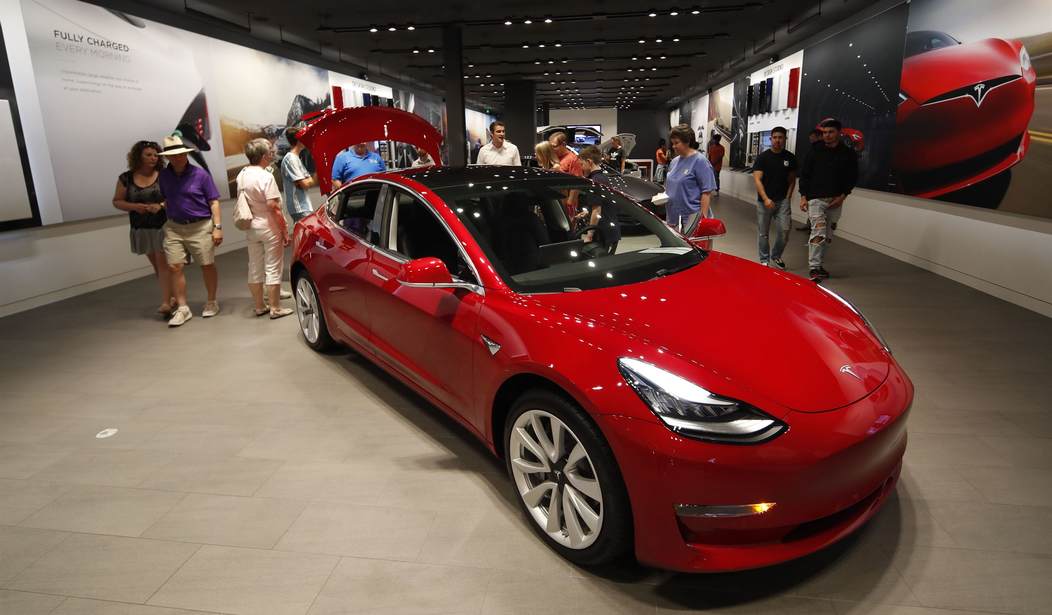The global warming farce provides cover for many subsidies. Congressmen can’t easily give government money to their affluent patrons and supporters. That’s too obvious. But if they can claim that the money is to support the fight against global warming, then it’s not so apparent that they are giving money to their rich friends.
The corn ethanol industry, a government creation, is enormous, and a lot of rich farmers and wealthy owners of ethanol distilleries are benefiting from it. They return the favor by supporting the politicians that make their industry possible. It’s questionable that corn ethanol reduces net CO2 emissions and, of course, it is dubious that CO2 is a serious threat to the climate. It doesn’t matter if the cover story is fake, as long as it sounds good.
Electric cars are play toys for well-off people. They are quite impractical due to their high cost and the possibility of running out of electricity at an inopportune time. Their expensive batteries are also subject to wearing out. Someone who is genuinely concerned about the cost of automotive transportation can buy a reliable, 10-year-old Honda for less than $5,000 and get better than 25 miles per gallon. So, why do electric cars, that often cost near $100,000, receive subsidies of up to $7500 each from the federal government? It is true that electric vehicles don’t emit
In 2017, a nationwide survey found that 56 percent of electric vehicle (EV) users had household incomes of at least $100,000 per year, while 17 percent had household incomes totaling at least $200,000. Roughly two-
Recommended
Government intervention in markets often has a hidden purpose, like favoring certain companies or individuals. Most of the green subsidies for solar energy, wind energy, ethanol, and electric cars don’t affect our well-being significantly and substantially benefit well-connected individuals and companies. Thus, we should be extremely careful about subsidies and make sure that they are in the national interest and not just a way to help the friends of politicians.
Take Tesla, for example. Elon Musk’s electric car company is an excellent illustration of the negative influence of corporatism in America. Tesla is actively lobbying the federal government to extend EV tax credits. And why shouldn’t it? Tesla has only had three profitable quarters in its history and is hemorrhaging vast amounts of money. The EV credit can be perceived as life support for the company’s business model, with Tesla comprising more than half of the credit’s recipients in 2018. Without the assistance the federal government supplies via the EV tax credits, it isn’t clear whether the company would be able to stay afloat. Rather than brave the creative destruction of the free market, Tesla seeks the warm embrace of government subsidies and likely survives as a consequence of it.
Unfortunately, this corporatism is not just a singular occurrence; the problem is much more systemic. Musk’s second taxpayer-subsidized company, SpaceX, faces similar structural issues. SpaceX receives the vast majority of its contracts from the federal government, but despite being essentially funded by the American taxpayer, the company has little to show for it. The company just slashed its workforce by approximately 10-percent. According to Bloomberg, SpaceX has negative earnings after interest, taxes, and depreciation, and the company has begun aggressively trying to raise money from Wall Street. Naturally, though, many investment firms were
Companies like Tesla and SpaceX utilize the federal government to prop up their business models at the expense of the American public. They promote damaging economic policies like the EV tax credit, all to sustain themselves off lucrative subsidies. Through extensive lobbying, these companies and many others like them carve out a niche, not in the free market, but the pocket of the taxpayer. If Tesla and SpaceX are to thrive, let them do so in the private marketplace, absent government intervention. Ultimately, the U.S. government should not be in the business of choosing winners in the private sector. Because when it does, the real losers are the American people.

























Join the conversation as a VIP Member